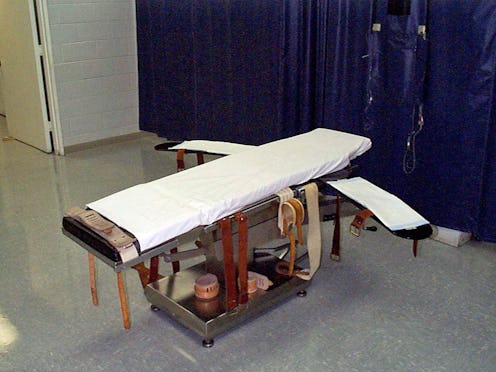News
Controversial Execution Halted At Last Minute
On Tuesday, an appeals court stayed the execution of Russell Bucklew in Missouri just hours before he was to be put to death. The U.S. 8th Circuit Court of Appeals agreed that Bucklew most likely would have suffered “a prolonged, tortuous death” were he to have been executed via lethal injection, thanks to a rare birth defect. This is the second time in a row since the botched execution of Clayton Lockett in Oklahoma that an execution has been delayed due to concerns over the humanity of the execution.
Bucklew, who was sentenced to death for a 1996 rape and double murder, has a birth defect known as cavernous hemangioma, which causes vascular deformities and tumors in his face, neck and throat. His attorneys — and multiple physicians — argued that a lethal injection would have led to a “long, drawn-out, and painful death,” possibly via “choking and suffocation on blood released by anticipated ruptures of the weakened veins in his neck and face.” In other words, the kind of death that would be in gross violation of the Eighth Amendment, which prohibits cruel and unusual punishment.
A lower court refused to issue a stay; had that ruling stood, Bucklew would have been the first person in the U.S. to be executed since Lockett. As such, he’s been given a 60-day reprieve.
The situation is complicated by Missouri’s secretive approach to executions. In 2007, a local newspaper learned that the head executioner in the state — who Missouri officials had previously refused to identify — was a dyslexic man who openly admitted to making mistakes in calculating drug dosages. The state responded by passing a law making it a crime to reveal the names of its executioners. Most recently, Missouri has refused to disclose the source of its lethal injection drug, prompting a lawsuit on behalf of five media outlets.
